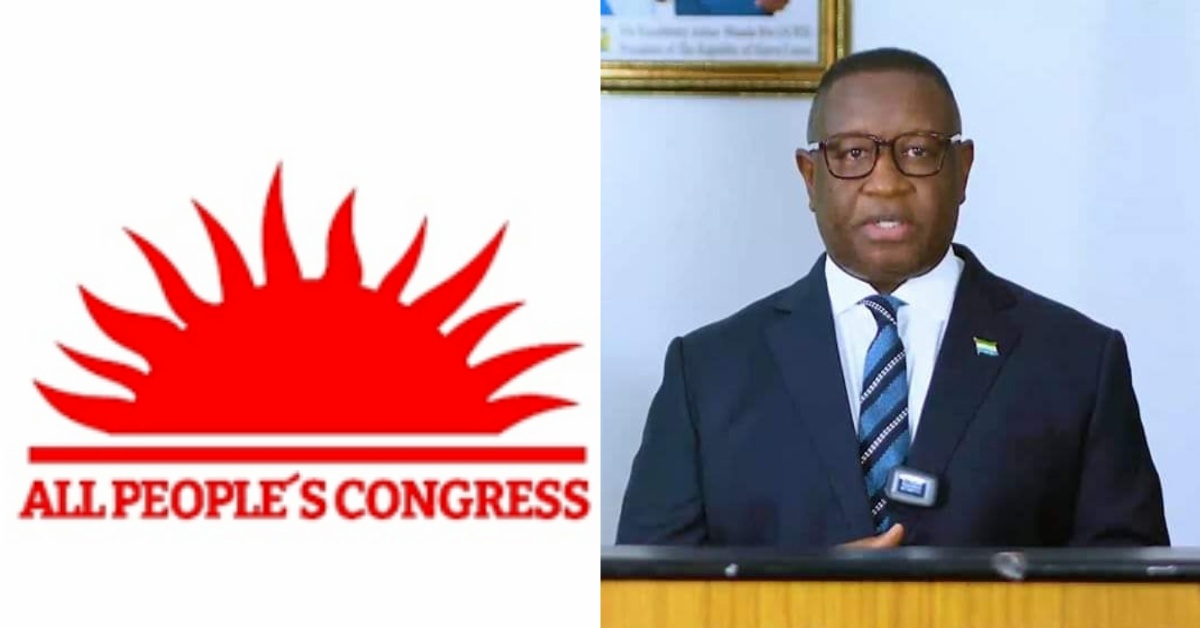Following the delay in payment of salaries to government officials in the country, the All Peoples Congress (APC) main opposition has raised concern for and on behalf of all workers in the country.
The We Yone News in their special edition on the 5th June 2024 reported that, the party expressed dissatisfaction claiming that such situation would not occur under the leadership of the APC party.
They maintained that, the persistent problem of delayed salary disbursements to government workers has become a cause for concern, particularly amidst a period of high inflation that has reduced the buying power of the populace.
The article compares the APC party’s approach during Ernest Bai Koroma’s tenure to now under President Julius Maada Bio’s SLPP government in prioritizing government workers’ welfare.
Under the APC government led by former President Ernest Bai Koroma, an emphasis was placed on ensuring that government workers received their salaries on time.
During the almost eleven-year tenure of the APC, salaries were disbursed before the end of each month, with special provisions made during holidays to ensure early payment.
This proactive approach was seen as a demonstration of the APC’s commitment to the well-being of the workforce, many of whom rely on their government salaries to support their families.
In sharp contrast, the SLPP government under President Bio has become notorious and has constantly been criticized for delays in salary payments, causing hardship and financial strain for government employees.
The We Yone points out that the failure to prioritize timely payment has had a significant impact on the majority of Sierra Leoneans who depend on their government salaries for their livelihood.
This delay has been perceived as a departure from President Bio’s campaign promise of bringing about positive change, with many viewing the current situation as a regression rather than progress.
Furthermore, the We Yone draws attention to the disparity in wages between government workers and the private sector, emphasizing the importance of timely salary payments for public servants.
It underscores the vital role that government workers play in the country’s workforce and the need for their salaries to be issued promptly to ensure their financial stability and ability to provide for their families.
The We Yone also highlights the APC party’s track record of advocating for the welfare of the people, citing examples such as the increase in the minimum wage during their time in power.
This contrast is used to underscore the perceived differences in priorities between the APC, which is portrayed as caring and empathetic, and the SLPP, which is characterized as heartless and unsympathetic towards the populace.
In conclusion, We Yone suggests that President Bio’s administration should strive to build upon the progress made by the previous government rather than backtrack on important issues such as timely salary payments.
The contrasting approaches of the APC and the SLPP serve as focal points for the ongoing political discourse in Sierra Leone, with the welfare of the people at the centre of the debate.




 5 Comments
5 Comments










Point of correction! The “We Yone News” should get their facts right. Under the APC, government staff were going up to SIX MONTHS without salary. Under this SLPP, government staff are delayed payments by less than THREE MONTHS.
To find the truth,go and check out the the reports of all DBOC members at district level since 2014_2024. for evidence.
This is exactly what the of Sierra is expecting from the Main opposition APC. Constructive criticism…..
Let’s face reality the government is struggling.
Which Pearson is this that said APC hone
or delay for six months with out paying salary to the works. Stop laying to the people of this country